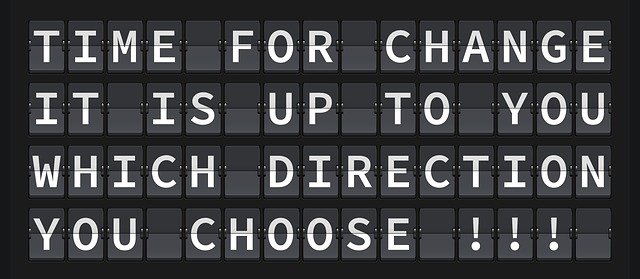Kim Armstrong provides a meditation on the theme of Cultivating Gratitude Daily. In the 12-Minute Meditation podcast on 21 March 2024, she takes us through a process of reviewing our day (or the previous day) at micro-points to reflect on instances, interactions or events that brought us joy, happiness or contentment. She encourages us to reflect on these moments to express appreciation for them. They don’t have to be big happenings, but by reflecting on the small positive moments in our life, we can cultivate gratitude on a daily basis.
Kim is co-founder and facilitator of Space Between, a not-for-profit organisation dedicated to bringing the benefits of mindfulness to teachers and school-aged youth. She has a Master’s Degree in Child and Adolescent Psychology and is a certified meditation and yoga teacher. Fun-loving Kim is a strong advocate and practitioner of deep listening and draws inspiration from Thich Nhat Hanh’s quote, “Live the actual moment. Only this actual moment is life”.
Space Between draws its name from Viktor Frankl’s book, Man’s Search for Meaning, and his observation that:
Between stimulus and response, there is a space. In that space lives our freedom and our power to choose our response. In our response lies our greatest happiness.
Guided meditation process
In her guided meditation, Kim helps us to explore the minutia of daily life and to learn to savour each moment that has enriched our lives in small and significant ways. Her process begins with encouraging us to take two deep breaths, inhaling through our nose and exhaling through our mouth, as a way to become grounded for the meditation practice. This initial breathing process could be accentuated by vagal toning. She then leads us to reflect on different stages in our day. The reflections below are my own recollections of moments I appreciated as I progressed through her “Cultivating Gratitude Daily” practice:
- Waking up – the warm morning hug from my partner; the sound of birds greeting the morning light (especially the Kookaburras and their raucous “laughter”); the red and yellow glow of the sunrise spreading across the horizon and being reflected in the waters of Moreton Bay; the view of Green Island and its sandy beach from my lounge room and deck; the sand dunes of Moreton island providing a very white backdrop; the early morning silence punctuated by the calls of birds and the sea breeze.
- Moving from the bedroom – appreciating having the water and toothpaste to brush my teeth; the opportunity to shower and freshen up for the day in a bathroom (instead of in a lake or river); observing the sunlight spreading throughout the rooms of the house I share with my partner and one of my sons; having a house to live in that is spacious and open to views of the Bay.
- Beginning the day – being able to make a cup of coffee on our Expresso machine; having access to Almond Milk (to avoid dairy milk intolerance); savouring the foam and taste of the cappuccino I made; providing a coffee for my partner; having distilled water and vitamins to energise my day; enjoying gluten-free toast and avocado for breakfast; watching the birds feeding off the nectar from our native Bottlebrush trees; enjoying the colour and shape of the Bottlebrushes.
- Transition to work, play, or exercise – having a focus and a purposeful task such as my blog and book; being able to write well; having a talent for integrating ideas, concepts and practices from multiple sources; having focus and clarity (not encumbered by “brain fog”); being able to form an intention and pursue it; being able to create poems to reflect my thoughts and emotions.
- Transition to home life – being able to walk on the Esplanade beside the Moreton Bay; seeing pelicans gliding gracefully across the water at the creek’s edge and resting contentedly on rocks beside the seagulls as they survey the surrounding Bay waters glistening with sunlight; having access to shops to buy a wide assortment of foods; having food to prepare for dinner; preparing the dinner meal for my partner and son; the pleasure of eating and sharing; the taste of food and drink (peppermint herb tea).
- After dinner – sharing a favourite TV show with my partner; being able to watch the Olympics and European soccer (having the resources to fund streaming services such as Stan and Kayo).
- Sleeping – being able to sleep (not suffering from insomnia); having a comfortable and warm bed to sleep in (not sleeping in the street on our Winter nights); the stillness of the night.
Kim points out that the “cultivating gratitude practice” has many benefits. She maintains that it offsets the negative bias of our brains and the tendency to focus on what is unpleasant or dissatisfying. Kim argues that gratitude builds resilience, displaces envy and resentment and builds a positive mindset. In her mindfulness training with teachers and school-aged youth, she aims to help them to achieve “integration and wholeness”. Cultivating gratitude helps us to get in touch with ourselves.
Kim and her colleagues at Space Between employ trauma-informed mindfulness training to help members of the school community to use the space between stimulus and response to make better choices for the benefit of themselves and their community. Research supports the organisation’s observation that undertaking mindfulness practices intentionally provides “systemic support for the mental health and well-being of students, teachers and families”.
Reflection
The “Cultivating Gratitude Daily” practice helps us to grow in mindfulness and experience the benefits of heightened creativity, greater calm and clarity, and improved focus and productivity. It assists us to see more clearly what we have in life – the things that bring us happiness and joy and builds positivity that contributes to increased resilience.
It also helps me to appreciate the opportunity to pursue a purpose, the creation of this blog, that is helpful for other people as I contribute to awareness of what resources are available to develop mindfulness and the multiple benefits that can accrue from pursuing mindfulness intentionally.
___________________________________________
Image by John Hain from Pixabay
By Ron Passfield – Copyright (Creative Commons license, Attribution–Non Commercial–No Derivatives)
Disclosure: If you purchase a product through this site, I may earn a commission which will help to pay for the site, the associated Meetup group and the resources to support the blog.



